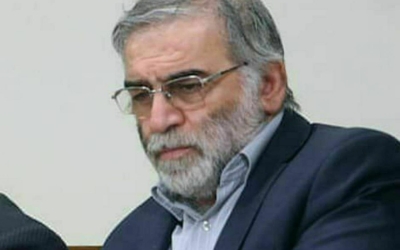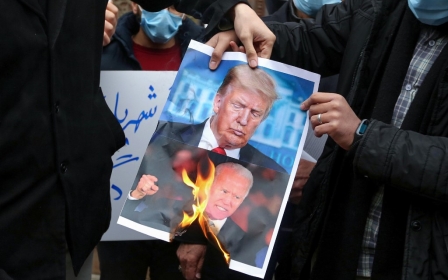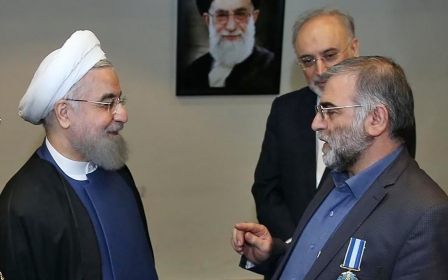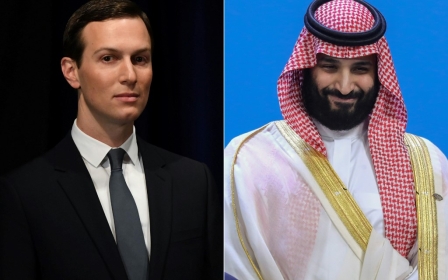Iran says nuclear scientist killed by 'artificial intelligence' machine gun
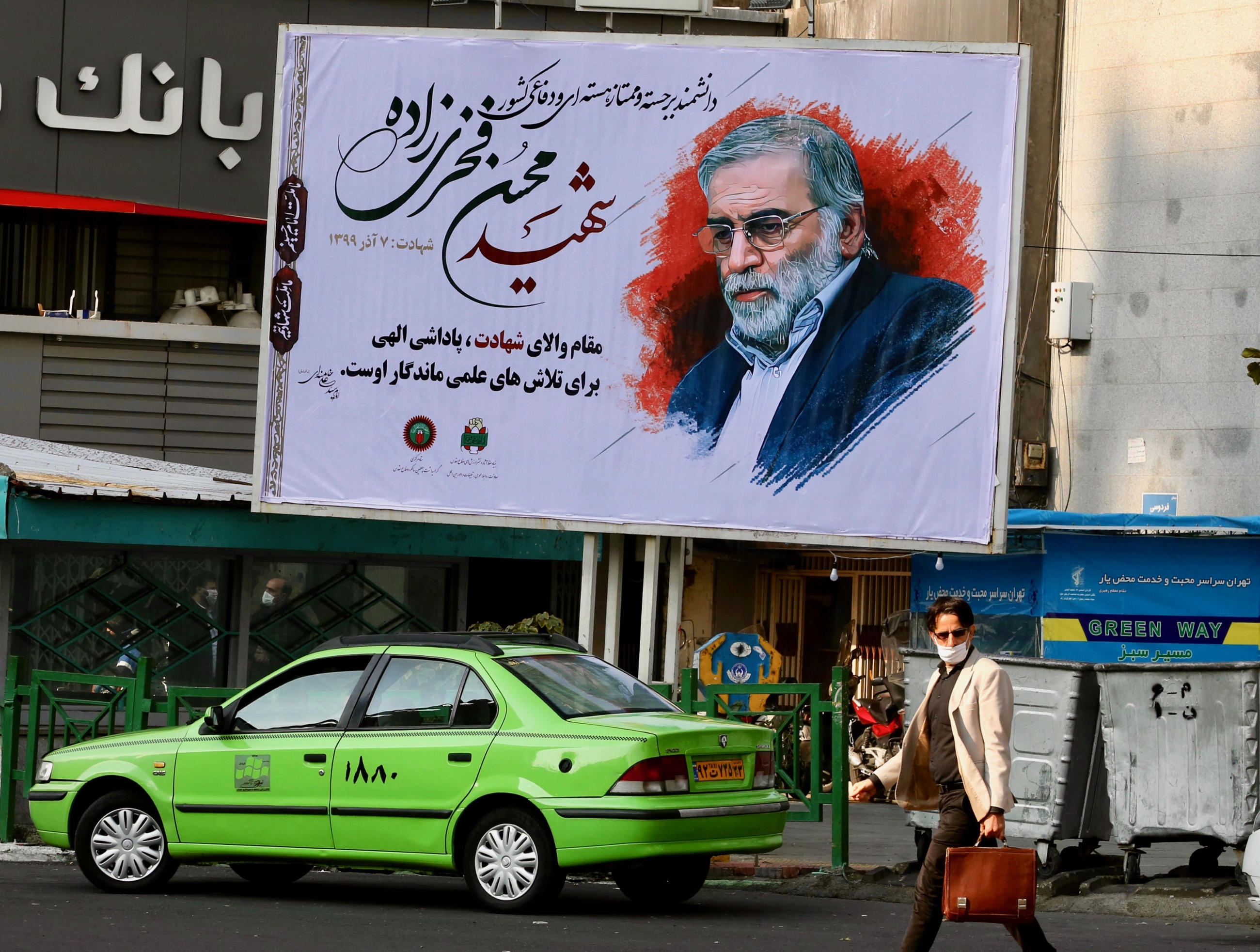
A satellite-controlled machine gun with "artificial intelligence" was used in last week's assassination of a top nuclear scientist in Iran, the deputy commander of the Revolutionary Guards told local media Sunday.
Mohsen Fakhrizadeh was driving on a highway outside Iran's capital Tehran with a security detail of 11 Guards on 27 November when the machine gun "zoomed in" on his face and fired 13 rounds, said Rear-Admiral Ali Fadavi.
The machine gun was mounted on a Nissan pickup and "focused only on martyr Fakhrizadeh's face in a way that his wife, despite being only 25 centimetres (10 inches) away, was not shot," Mehr news agency quoted him as saying.
It was being "controlled online" via a satellite and used an "advanced camera and artificial intelligence" to make the target, he added.
Fadavi said that Fakhrizadeh's head of security took four bullets "as he threw himself" on the scientist and that there were "no terrorists at the scene".
New MEE newsletter: Jerusalem Dispatch
Sign up to get the latest insights and analysis on Israel-Palestine, alongside Turkey Unpacked and other MEE newsletters
Various accounts of the scientist's death have emerged since the attack, with the defence ministry initially saying he was caught in a firefight with his bodyguards, while Fars news agency claimed "a remote-controlled automatic machine gun" killed him, without citing any sources.
Remotely controlled weapons - from assault rifles to light machine guns - are also known to have proliferated across the Middle East in recent years.
According to Iran's defence minister, Amir Hatami, Fakhrizadeh headed the ministry's Defence Research and Innovation Organisation, focusing on the field of "nuclear defence".
Excuse for war
Iranian authorities have blamed arch foe Israel and the exiled opposition group the People's Mujahedeen of Iran (MEK) for the assassination.
State-run Press TV had previously said "made in Israel" weapons were found at the scene.
Although Israel has not commented on Fakhrizadeh's killing, a senior official in the Trump administration told US media that Mossad, Israel's external intelligence agency, was behind the operation.
Ayatollah Ali Khamenei, Iran’s supreme leader, has vowed to retaliate. Meanwhile, former air force commander in the Islamic Revolutionary Guard Corps (IRGC) Hossein Dehghan said after the killing that “we will strike as thunder at the killers of this oppressed martyr and will make them regret their action”.
Iran has several proxy allies in Yemen, Syria, Lebanon, the besieged Gaza Strip and Iraq.
The killing of Fakhrizadeh and recent attacks on Iranian-backed groups are seen by analysts as an attempt by Israel to trigger a military response from Iran, giving an excuse for war and leaving the incoming administration of US president-elect Joe Biden no avenue to re-enter the Iran nuclear deal, which Trump exited in 2018.
Middle East Eye delivers independent and unrivalled coverage and analysis of the Middle East, North Africa and beyond. To learn more about republishing this content and the associated fees, please fill out this form. More about MEE can be found here.


